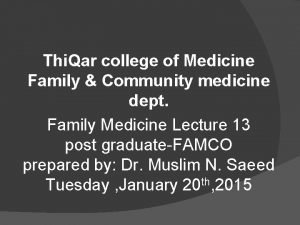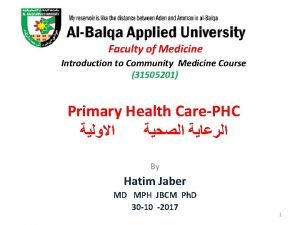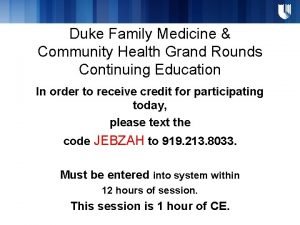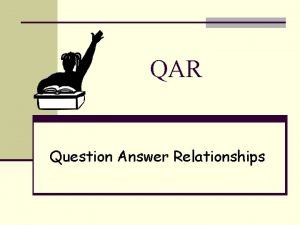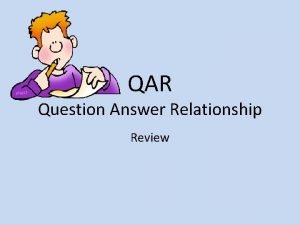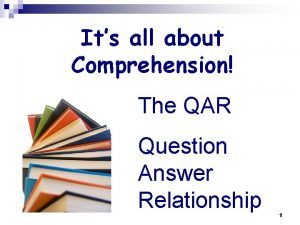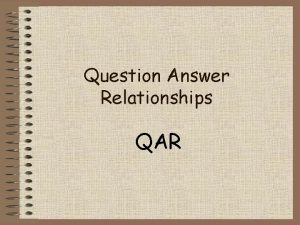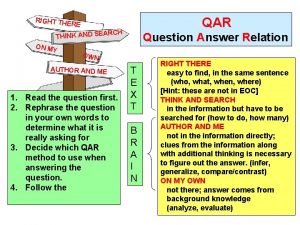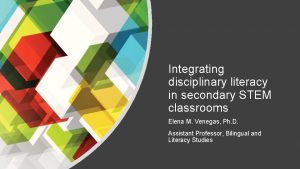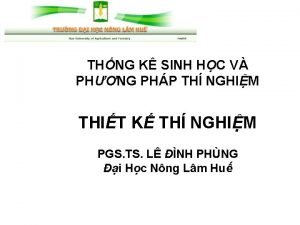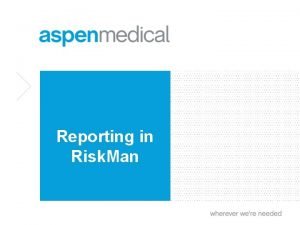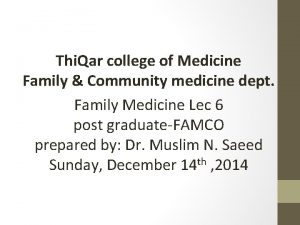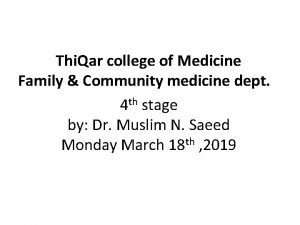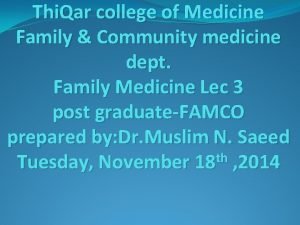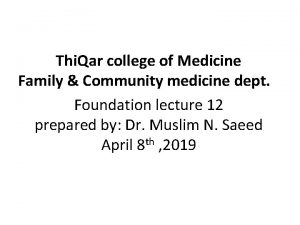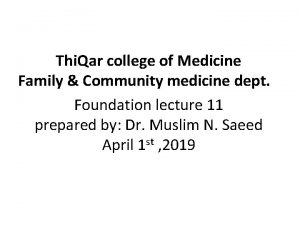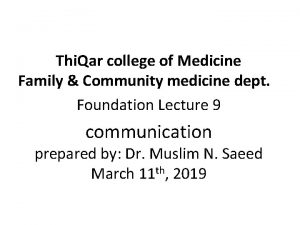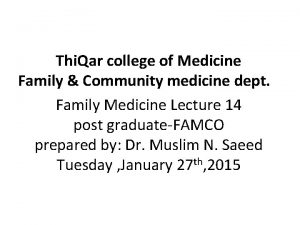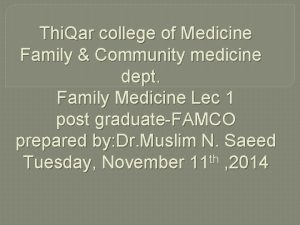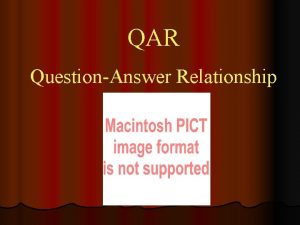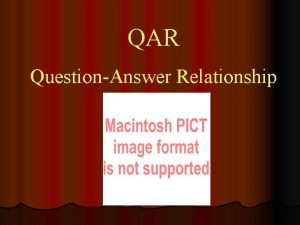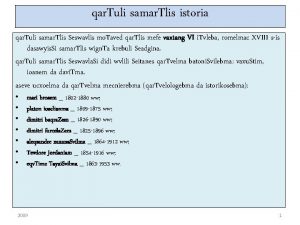Thi Qar college of Medicine Family Community medicine

















- Slides: 17

Thi. Qar college of Medicine Family & Community medicine dept. Family Medicine Lecture 9 post graduate-FAMCO prepared by: Dr. Muslim N. Saeed Tuesday, December 21 st , 2015

Newborns -All newborns should receive a newborn metabolic screening test prior to hospital discharge. Hearing Impairment: -Routine screening of all newborn infants for hearing loss. -Universal screening of infants for congenital hearing loss should be performed during the first month of life. 1. Screening involves either a one-step or a two-step process. 2. The two-step process includes oto-acoustic emissions (OAEs) followed by auditory brainstem response (ABR) in those who fail the OAE test. 3. The one-step process uses either OAE or ABR testing.


Auditary brain stem response

Newborns -Hemoglobinopathies: Recommend screening all newborns for hemoglobinopathies (including sickle cell disease). -Newborn screen tests for phenylketonuria (PKU), hemoglobinopathies, and hypothyroidism.

Newborns Gonorrhea, Ophthalmia Neonatorum Recommend prophylactic ocular topical medication against gonococcal ophthalmia neonatorum for all newborns.

Hearing Impairment -Adults aged > 50 years Question older adults periodically about hearing impairment, counsel about availability of hearing aid devices, and make referrals for abnormalities when appropriate. 1. 20%– 40% of adults aged > 50 years and > 80% of adults aged ≥ 80 years have some degree of hearing loss. 2. Additional research is required to determine if hearing loss screening can lead to improved health outcomes. 3. No harm from hearing loss screening. 4. No harm related to hearing aid use.

Functional Assessment Screening in the Elderly









Thank you
 Types of family in community medicine
Types of family in community medicine Types of family in community medicine
Types of family in community medicine Duke medicine grand rounds
Duke medicine grand rounds Qar lesson
Qar lesson Qar examples
Qar examples Qar comprehension
Qar comprehension Qar test
Qar test Keçdi dəniz aşdı dağ
Keçdi dəniz aşdı dağ Qar visuals
Qar visuals Qar visuals
Qar visuals Tế bào thụ cảm thị giác
Tế bào thụ cảm thị giác Một học sinh cận thị có các điểm cc cv
Một học sinh cận thị có các điểm cc cv Bé thì chăn nghé chăn trâu
Bé thì chăn nghé chăn trâu Bớt đầu thì bé nhất nhà
Bớt đầu thì bé nhất nhà Mode địa chỉ tức thì là mode
Mode địa chỉ tức thì là mode Nguyễn thị cẩm châu
Nguyễn thị cẩm châu Bố trí thí nghiệm khối hoàn toàn ngẫu nhiên
Bố trí thí nghiệm khối hoàn toàn ngẫu nhiên Riskman report
Riskman report
